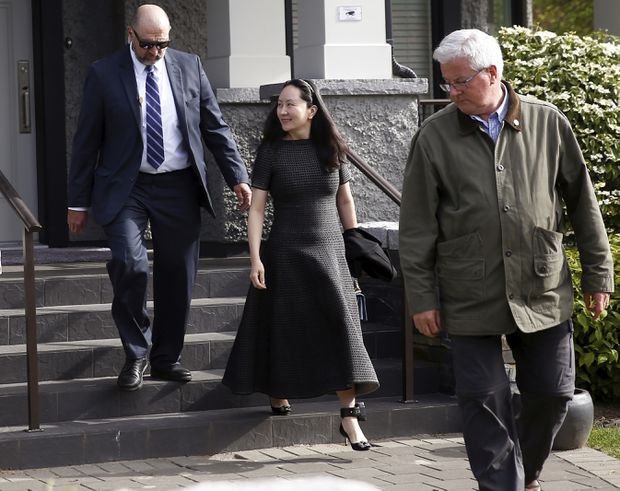Meng Wanzhou US Extradition Case Ends, Sentencing To Take Months

Huawei says it is confident in Meng’s innocence, andi it trusts the Canadian judicial system to reject US extradition request
The protracted extradition case of Huawei chief financial officer Meng Wanzhou to the United States has ended on Wednesday.
But delivering a verdict on the matter is expected to take months, in a complex case that has geopolitical implications between China and Canada, after Beijing detained a number of Canadian citizens (days after the arrest of Meng in Canada).
China has even sentenced one Canadian citizen to death.
Earlier this month Canadian Michael Spavor was sentenced to 11 years on spying charges, and there is no word about a trial date for former Canadian diplomat Michael Kovrig, who was also detained in December 2018 and charged with spying.

Hostage politics
China has been accused of engaging in blatant hostage politics, following the arrest of Huawei chief financial officer Meng Wanzhou on 8 December 2018 in Canada.
She has now been under house arrest for more than two years as she fights an extradition order to the US.
The US alleges Meng misled HSBC over Huawei’s business dealings in Iran, causing the bank to break US sanctions.
Meng maintains she is innocent of the charges, and China warned Canada at the time of ‘repercussions‘ and ‘consequences’ for Meng’s arrest.
What lends credence to Western claims that China is playing hostage politics is the timing of the arrests of two Canadians.
Death sentence
And China’s Supreme Court this month rejected the appeal of a third Canadian, Robert Lloyd Schellenberg, who has been in prison since 2014.
The Chinese Supreme court upheld Schellenberg’s death sentence for drug smuggling (he denies the charge), despite a Chinese court initially sentencing him to 15 years in prison on the matter.
Schellenberg had appealed his prison sentence.
But a retrial shocked Canadian officials, when in January 2019 (a month after Meng’s arrest), the Dalian intermediate people’s court ordered his execution instead, citing undisclosed ‘new evidence’.
Trial ends
On Wednesday the extradition trial of Meng ended, with Canadian prosecutors reportedly saying that the defense of Meng failed on facts and law.
According to the Guardian newspaper, Meng’s legal team argued earlier this week that the bank had never faced civil or criminal consequences for breaching American sanctions.
Her lawyers also reportedly suggested to the court that there had never been a fraud case in Canada where the mere possibility of prosecution would merit charges, especially if no loss was suffered by the victim.
“In this case, there is simply no evidence of a quantifiable or measurable risk of loss to HSBC,” the defense lawyer Scott Fenton was quoted as saying. “We are in a zero loss situation.”
Meng’s legal team also called US evidence “manifestly unreliable” and suggested that the only conclusion a court could reasonably make would be to release her.
But on Wednesday, lawyers for the Canadian government, representing their American counterparts, argued Meng’s actions in 2013 constituted fraud and that she should face prosecution.
The crown lawyer Robert Frater was quoted as saying the defense was asking the associate chief justice of the British Columbia supreme court, Heather Holmes, to draw inferences and conclusions that were not spelled out in the record of the case – and argued that defense lawyers’ version of events represented an “alternative narrative” to the truth.
Huawei statement
Meanwhile Huawei Canada told Silicon UK in a statement that Meng’s Charter rights had been violated by the abuse of the legal process.
It said the only way to redress the prejudice caused by the abuse is to stay the extradition.
The Chinese vendor said that “evidence heard in court shows there was no deception, loss, or even a plausible theory of risk. There was no causal connection between Ms. Meng’s PowerPoint presentation and any deprivation said to have befallen HSBC.”
“From the start, Huawei has been confident in Ms. Meng’s innocence and has trusted the Canadian judicial system,” Huawei Canada told Silicon UK. “Accordingly, Huawei has been supporting Ms. Meng’s pursuit of justice and freedom. We continue to do so today.”